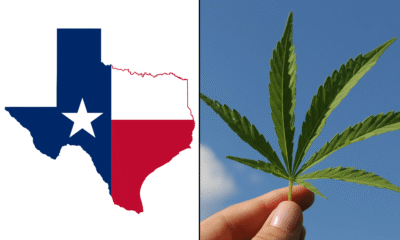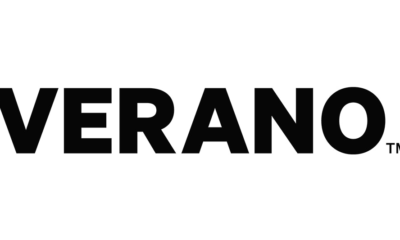bankruptcy
Empire Cannabis Club files for bankruptcy, claims $3.4 million of debt
Published
9 months agoon

The Empire Cannabis Club, known for its bold fight to keep open an unlicensed cannabis operation in New York City, has filed for bankruptcy. The Elfand Organization, also known as Empire Cannabis Clubs, filed for Chapter 11 in the Southern District of New York on Dec. 2.
Empire listed six addresses for the company and claimed its assets were in the $1 million to $10 million range. The debts totaled over $3.4 million and were outlined as follows:
- 424 Broadway lease $584,155
- BNN Fulton Flushing lease $327,642
- 833 Manhattan Ave. lease $201,108
- 268 Metropolitan lease $65,850
- NYSIF Workers Comp policy $95,369
- ADT security contract $8,152
- Spectrum $4,652
- ConEd $271
- Iakovos Inc. lease $12,000
- 172 Allen Realty lease $60,000
- Vlasic Labs products $4,137.50
- IRS Treasury Dept. taxes $5,058.83
- NY State taxes $250,157.78, $1,514,356.08 & $290,315.05
Empire’s legal state of mind

Green Market Report previously wrote that Empire Cannabis Clubs was suing New York closing its unlicensed cannabis stores which had operated since 2021. Empire’s five locations in New York City were raided on Aug. 29, with law enforcement officials entering each shop within the same 30-minute timeframe, owner Jonathan Elfand told Green Market Report. The New York Sheriff’s Department ordered all five stores closed as part of New York City’s Operation Padlock.
The Empire stores have remained closed since the raids, but the chain is still doing business via delivery for its roughly 196,000 members, Elfand said at the time. Elfand and Empire have never shied away from the fact that the five clubs have been providing members with high-quality marijuana goods, but the legal argument they’re relying on is that the business model is fully compliant under the 2021 state law that legalized recreational cannabis, the Marihuana Regulation and Taxation Act (MRTA).
“As long as you’re not profiting, you don’t need a license,” Elfand said. Empire has always operated as a not-for-profit organized under New York state law. “So at my club, all I do is I facilitate members to be able to acquire (cannabis goods).”
Details of how the club works are outlined on Empire’s website, but the basic business model revolves around a simple membership fee of $24.99 per month. With that monthly payment, Empire members can acquire cannabis from any of the clubs with zero markup. That, Elfand said, is the key to Empire’s legality.
Elfand also said that since its founding, it has paid “millions” in taxes to the state and city, the suit asserts and had a payroll of $3.2 million last year for roughly 75 employees. Gross sales at Empire reached $2.5 million in the second quarter of 2024, according to court records.
Operation padlock
Since that case was filed in September, a judge declared Operation Padlock unconstitutional in October for one dispensary called Cloud Corner. Cloud Corner was allowed to reopen but it wasn’t clear if that ruling applied to other unlicensed operations. This week, New York’s cannabis czar Dasheeda Dawson told Green Market Report that most of the unlicensed shops closed down by the New York City sheriff have remained shuttered, which has been a boon to the legal dispensaries.
“Operation Padlock continues. We meet on a regular basis … with the enforcement agencies. We’re at a point now where we’ve had success in really shutting down a good amount of the stores,” Dawson said. “Mostly, we’re not seeing those reopen.”

Author: mscannabiz.com
MScannaBIZ for all you Mississippi Cannabis News and Information.
You may like
-


Texas Supreme Court Refuses To Take Up Marijuana Case Challenging State’s Rejection Of Local Decriminalization Law
-


California Passes Bill to Ban Intoxicating Hemp Products Outside Cannabis Market
-


Pending Federal Hemp Legislation Could Reshape The Legal Industry By Banning Some Products (Op-Ed)
-


Verano Proposes to Redomicile Parent Company From British Columbia to Nevada
-


8,000 cannabis plants seized from illegal Bradford grow-op
-


New York Lawmakers Schedule Psychedelics-Focused Hearing To Discuss ‘Medicinal Value And Risks’ Of Psilocybin
bankruptcy
Irwin Naturals believes it will emerge from bankruptcy in April
Published
6 months agoon
March 26, 2025

The beleaguered supplements company, Irwin Naturals Inc., whose foray into ketamine clinics destroyed a once profitable company, has amended its Chapter 11 bankruptcy declaration. Chapter 11 allows the company’s debtors to propose a plan of reorganization.
According to the court document filed in February, if its plan is enacted, the company believes it will emerge from bankruptcy in April 2025. The plan is as follows:
- Irwin Nevada will continue operating its nutraceutical business that it has successfully operated since its inception in 1994
- 5310 will remain a subsidiary of Irwin Nevada which holds the majority of the debtors’ intellectual property
- DAI will remain as the holding company for Irwin Nevada. DAI US HoldCo is a holding company that owns 2% of Irwin Nevada
- The debtors will be dissolving Irwin Canada with existing Irwin Canada shareholders to obtain their equivalent stock interest in Irwin
Canada in DAI.
The creditors are organized by class of claims. The debtors propose paying East West Bank (EWB), which is owed $19.3 million, $1 million a quarter beginning in June 2025. If the debt isn’t paid off by February 2027, a lump sum will need to be paid. General unsecured claims in the range of $5-$6 million will be paid 40% of the net disposable income.
How it started
Irwin Nevada also has two other supplement brands, Nature’s Secret and Applied Nutrition. Irwin Nevada’s product line currently includes over 130 formulas, which are distributed in more than 100,000 retail locations, including stores like Costco, Walmart, and CVS.
The debtors’ 2023 gross sales were $102 million. Klee Irwin is the CEO of the company.
As many people experienced mental health crises during the Covid pandemic, Irwin decided to embark on a plan to become the world’s first and largest household brand of psychedelic mental health clinics. To do so, he formed a new subsidiary: Irwin Naturals Emergence, Inc. and East West Bank agreed to lend the company $40 million to fund acquisitions.
What went wrong
The company’s Chapter 11 file states that its attempt to uplist the stock and a general downturn in retail caused it to suffer. The filing blamed “Extraordinarily high returns from retailers that were not on par with historical figures and projections, a downturn in the retail market generally, and the unexpectedly slow growth of digital sales.”
The company alleges that the bank exerted excessive and unreasonable control over their business affairs and imposed unconscionable constraints on them. It said that the Irwin Companies received three notices of default from EWB for failure to meet certain technical covenants of the Credit Agreement even though Irwin claims it had never been late on any debt service payments. Irwin claims it tried to renegotiate with the bank and made changes like cutting employees and closing the Emergence clinics. They allege EWB was sweeping its bank accounts daily.
The lender disputes Irwin’s side of the story, saying “Key elements of the Debtors’ business plan failed and the Debtors were allegedly in default for failure to comply with multiple covenants, including but not limited to the failure to meet minimum borrowing base availability requirements and to make required prepayments in full as a product of not meeting minimum borrowing based availability.” The lender says it validly exercised its contractual remedies in light of such defaults to appoint an independent director to protect the Lenders’ collateral against alleged mismanagement.
More lawsuits
Irwin suggests in the filing that it may sue EWB for taking control of their business and forcing them to pay approximately $2 million in professional fees related to EWB’s professionals and professionals that EWB forced them to retain. They claim that EWB restricted their ability to borrow money and controlled their expenses. Irwin also believes it will get the amount it owes to EWB reduced from $19 million.
Irwin also owes money to other parties in addition to EWB.
- Its being sued by Media Max Network for $79,000 in unpaid invoices.
- Herman and Jasminn Reese filed a personal injury case against the supplement company.
- Trisha Vaughn filed a class action lawsuit against Irwin Nevada in the Los Angeles Superior Court (case no. 24STCV01558) alleging damages due to alleged false/misleading advertising on an Irwin Nevada weight management supplement.
- EMA Anesthesia filed a breach of contract lawsuit against Serenity Health, LLC; Irwin Naturals Emergence, Inc.; and Irwin Naturals, Inc. for alleged unpaid invoices for anesthesia services provided by the company.
What’s next
The bankruptcy court has not approved the plan yet. Irwin has hired Essex Capital to assist it in its plan to get out of Chapter 11. If the company receives exit financing from Essex, it will move quickly with the plan. Irwin also stated it hired and retained STS Capital Partners M&A Advisers Inc. to sell the company six to eight months after the claims have been paid. Irwin says it has reviewed two offers to buy the company, but the price offered was below market value. They believe the company is worth between $93 and $112 million.
If the plan goes through, Irwin will remain CEO and his salary will return to his pre-petition salary of $790,000 a year. CFO Mark Green will remain and his salary will continue to be $240,000 a year.

Author: mscannabiz.com
MScannaBIZ for all you Mississippi Cannabis News and Information.
bankruptcy
New York vape company The Blinc Group files for bankruptcy
Published
6 months agoon
March 18, 2025

New York-based vape company The Blinc Group Inc. filed for Chapter 7 in a New York bankruptcy court. The company’s petition cited at least $1 million in liabilities. CEO Arnaud Dumas de Rauly signed the form submitted on March 14.
The company appears to have not paid taxes, suppliers, media or public relations firms, based on the list of creditors included in the filing.
While plant-touching cannabis company cannot file for Chapter 7 bankruptcy protection, Blinc describes itself as a vaping technology company. Under Chapter 7, a trustee will attempt to liquidate the assets of the company in order to pay debtors.
Blinc is a private company and sells it products in 11 states as well as China. Last month the company introduced a new product called TUUN, billed as its first 2 milliliter all-in-one with variable voltage and pre-heat on-tap.
The company’s list of creditors includes some big names in the cannabis industry as well as others including:
- 7Thirty Fund LLC
- Arcview Collective Fund
- Arizona Department of Revenue
- Equitas Partners Fund
- Etain Health
- Florida Department of Revenue
- Georgia Department of Revenue
- GoDaddy
- Hubspot
- Illinois Department of Revenue
- U.S. Internal Revenue Service
- Michael Zaitsev
- Meltwater News
- Michigan Department of Treasury
- Microsoft
- New Jersey Department of Taxation
- New York Department of Taxation
- NisonCo
- Ohio Department of Taxation
- Oregon Department of Revenue
- Panther Opportunity Fund
- Politico
- WGD Opportunity Fund
In addition, several Chinese companies were listed as creditors to the company.

Author: mscannabiz.com
MScannaBIZ for all you Mississippi Cannabis News and Information.


Bright Green Corp. (OTC: BGXX) plans to file a voluntary petition for reorganization under Chapter 11 of the United States Bankruptcy Code in the United States Bankruptcy Court for the Southern District of Florida in the coming days.
The company has seen much upheaval in the past few months and failed to achieve the big promises it laid out.
In December, Bright Green announced that its CEO, Gurinder Singh, resigned, along with board members Dean Deson, Robert Arnone and Dean Valore. In addition, Saleem Elmasri also resigned as the chief financial officer, leaving only Lynn Stockwell to run the company.
Board departures
At the time of the resignations, it was announced that now-CEO Stockwell wanted to restructure the company. Her plan was to on-shore the end-to-end active pharmaceutical ingredient (API) manufacturing back to the United States and position the company as the facilitator and supplier of plant-based controlled substances authorized to manufacture in the U.S.
The restructuring and new direction included canceling all the company’s existing contracts, expressed or implied; land purchase options; employment agreements; board member agreements; financing agreements; and warrants.
The company also said it would repay creditors of allowed general unsecured claims in the form of 20% in cash plus 80% in newly issued common stock,. Bright Green said it will issue new common stock to the existing holders of common stock after a 1-for-50 reverse stock split, such that their dilution is limited to the newly issued common stock to the creditors.
“Simply put, Bright Green Corp. was in an extraordinary unique position to produce, manufacture and research legal controlled substances, under registration and licensing with both state and the federal government,” Stockwell said. “The company was unable to take advantage of the opportunity and was compromised financially when globalization policies were not favorable for research, production and manufacturing within the United States. In addition, the past immigration policy made funding from the company’s EB-5 program for investment capital impossible”.
Big plans … again
Once it emerges from bankruptcy, the company said it will change its name to Drugs Made in America Corp. Bright Green said it plans to get revenue from “production and supply contracts and maintain its EB-5 investor program.”
According to the company, it will “seek to partner with Health and Human Services and designate scientific support for research at the existing facility in Grants, New Mexico, on a contract, cost-plus basis.”
Franchise plans
Bright Green also said it is exploring a franchise-based business model to build agriculture facilities in phases across western Texas, eastern Arizona and central New Mexico.
“Each facility will include 15-acre specialty greenhouses, constructed annually until market demand is met,” the company said.
The company expects to receive a federal loan guarantee for its 60 new megafarm owner/operators, who collectively will invest $3.5 billion to supply and strengthen the Drugs Made in America supply chain.
Bright Green never delivered
Green Market Report has previously written about Bright Green‘s big promises to investors that it ultimately never delivered upon. The company crowed about its approval to grow cannabis for research with a DEA license. It also claimed it had built a huge growing facility but had to return most of the equipment for failing to pay the vendor.
The company never delivered any cannabis for research and never reported any revenue. What it did accomplish was paying its executives generous salaries and taking out large credit lines. The company kept telling investors that harvests were on the horizon, but nothing ever materialized.
Eventually, the stock was delisted from the Nasdaq and lately traded on the OTC for roughly four cents a share.

Author: mscannabiz.com
MScannaBIZ for all you Mississippi Cannabis News and Information.

Texas Supreme Court Refuses To Take Up Marijuana Case Challenging State’s Rejection Of Local Decriminalization Law

California Passes Bill to Ban Intoxicating Hemp Products Outside Cannabis Market

Pending Federal Hemp Legislation Could Reshape The Legal Industry By Banning Some Products (Op-Ed)

Verano Proposes to Redomicile Parent Company From British Columbia to Nevada

8,000 cannabis plants seized from illegal Bradford grow-op

New York Lawmakers Schedule Psychedelics-Focused Hearing To Discuss ‘Medicinal Value And Risks’ Of Psilocybin

Curaleaf Opens Cannabis Dispensaries in Florida, Ohio

How to Protect Your Outdoor Cannabis Crops From Pests

Feds provide anti-cannabis group a platform to bash legalization (Newsletter: September 15, 2025)

Dozen arrested after south Mississippi bust for illegal sales to underage customers

The Toking Traveler: Why Amsterdam Weed Is Mostly Boof

Arkansas Medical Marijuana Sales Are On Track To Set A New Annual Record

When Cannabis Brands Blur Into Youth Culture, Regulators Notice: Lessons From Tobacco’s Past

Rhode Island Marijuana Dispensary License Application Process Officially Launches

Middle school student found with cannabis in bookbag, Charles County deputies say

Smugglers who brought drugs on an industrial scale into Wales jailed

Attorney pulls out bag of cannabis in NC Supreme Court hearing

WHO AM I? Man wanted for New Bern cannabis store theft

Cannabis packages under scrutiny

California authorities shut down nearly $30 million worth of illegal cannabis operations

A Green Light for Cannabis? Europe Waits While the U.S. Untangles the Red Tape

Move Over, Booze: Weed Drinks Pulled $1.1 Billion in U.S. Sales in 2024

Congressional Committee Votes To Repeal Marijuana Expungements Law In Washington, D.C.

Times Square Welcomed Its Brightest Cannabis Billboard Yet

Alert: Department of Cannabis Control updates data dashboards with full data for 2023

Connecticut Appoints The US’s First Cannabis Ombudsperson – Yes there is a pun in there and I’m Sure Erin Kirk Is Going To Hear It More Than Once!

5 best CBD creams of 2024 by Leafly

EU initiative begins bid to open access to psychedelic therapies
New Study Analyzes the Effects of THCV, CBD on Weight Loss

Free delta-9 gummies from Bay Smokes

5 best autoflower seed banks of 2024 by Leafly

Discover New York’s dankest cannabis brands [September 2024]

Press Release: CANNRA Calls for Farm Bill to Clarify Existing State Authority to Regulate Hemp Products

Curaleaf Start Process Of Getting Their Claws Into The UK’s National Health System – With Former MP (Resigned Today 30/5/24) As The Front Man

May 2024 Leafly HighLight: Pink Runtz strain

Local medical cannabis dispensary reacts to MSDH pulling Rapid Analytics License – WLBT

Recreational cannabis on ballot for third time in South Dakota

5 best THC drinks of 2024 by Leafly

Horn Lake denies cannabis dispensary request to allow sale of drug paraphernalia and Sunday sales | News

Mississippi city official pleads guilty to selling fake CBD products

6 best CBD gummies of 2024 by Leafly

Nevada CCB to Accept Applications for Cannabis Establishments in White Pine County – “Only one cultivation and one production license will be awarded in White Pine County”

The Daily Hit: October 2, 2024

5 best delta-9 THC gummies of 2024 by Leafly

Weekly Update: Monday, May 13, 2024 including, New Guide for Renewals & May Board meeting application deadline

PRESS RELEASE : Justice Department Submits Proposed Regulation to Reschedule Marijuana

5 best THCA flower of 2024 by Leafly

People In This State Googled ‘Medical Marijuana’ The Most, Study Shows
Trending
-

 California Cannabis Updates1 year ago
California Cannabis Updates1 year agoAlert: Department of Cannabis Control updates data dashboards with full data for 2023
-

 Breaking News1 year ago
Breaking News1 year agoConnecticut Appoints The US’s First Cannabis Ombudsperson – Yes there is a pun in there and I’m Sure Erin Kirk Is Going To Hear It More Than Once!
-

 best list1 year ago
best list1 year ago5 best CBD creams of 2024 by Leafly
-

 Business12 months ago
Business12 months agoEU initiative begins bid to open access to psychedelic therapies
-

 cbd1 year ago
cbd1 year agoNew Study Analyzes the Effects of THCV, CBD on Weight Loss
-

 Bay Smokes1 year ago
Bay Smokes1 year agoFree delta-9 gummies from Bay Smokes
-

 autoflower seeds12 months ago
autoflower seeds12 months ago5 best autoflower seed banks of 2024 by Leafly
-

 cannabis brands12 months ago
cannabis brands12 months agoDiscover New York’s dankest cannabis brands [September 2024]
